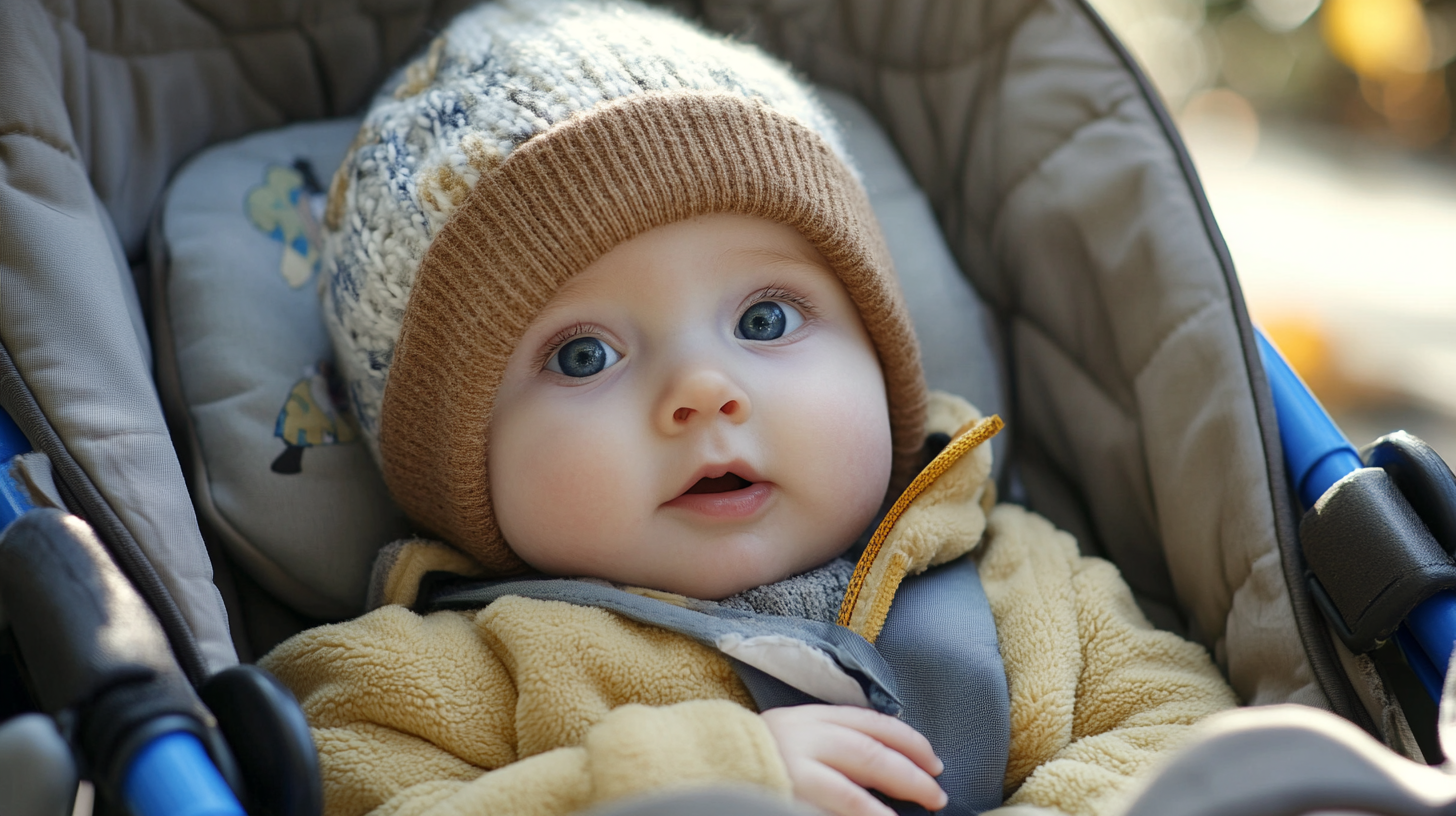In this article, we’ll explore key infant milestones in detail and delve into how daycare can be a valuable partner in nurturing your baby’s development. By understanding the intricate aspects of these milestones and the supportive environment daycare provides, parents can make informed decisions that positively impact their child’s early years.
Understanding Infant Milestones
Infant milestones are behaviors or physical skills seen in babies as they grow and develop. These milestones are grouped into categories such as physical, cognitive, social, and emotional development. Each baby is unique and may reach these milestones at different times, but understanding these stages can help you track your infant’s progress. Having a clear understanding of these milestones allows parents to celebrate achievements and identify any areas where additional support or attention might be needed.
Physical Development Milestones
Physical development in infants includes gross and fine motor skills. Here’s what to expect:
- 0-3 Months: In the early months, babies begin to lift their heads while lying on their stomachs and start to stretch and kick their legs. These early movements are essential for building strength and coordination, which serve as the foundation for later physical milestones. Additionally, these activities help infants develop crucial muscle groups necessary for future mobility and motor skills.
- 4-6 Months: Around this time, babies learn to roll over, sit up with support, and reach for objects, which helps develop hand-eye coordination. The ability to reach and grasp objects not only enhances motor skills but also encourages exploration and cognitive development. Such activities are vital for sensory development and spatial awareness as infants begin to interact more with their environment.
- 7-9 Months: Babies often start to crawl, stand with support, and may even begin to pull themselves up to a standing position. These movements signify increased muscle strength and coordination, paving the way for walking. Crawling also facilitates brain development by promoting cross-lateral movements that enhance neural connections.
- 10-12 Months: Many babies take their first steps and begin to walk with or without assistance. This monumental milestone represents a significant leap in independence and mobility, allowing infants to explore their world more freely. Walking also opens up new opportunities for social and environmental interaction, further supporting overall development.

Cognitive Development Milestones
Cognitive milestones involve learning, thinking, and problem-solving skills:
- 0-3 Months: Babies start to recognize familiar faces and objects and follow moving things with their eyes. This period is marked by rapid brain development, where infants begin to make connections between sights and sounds. These foundational skills are critical for the development of memory and recognition, setting the stage for more complex cognitive processes.
- 4-6 Months: Infants explore with their hands and mouths, show curiosity about objects, and begin to understand cause and effect. This exploratory behavior is crucial for cognitive growth, as it enables babies to learn about their environment and the relationships between objects and actions. By understanding cause and effect, infants start forming basic problem-solving strategies.
- 7-9 Months: Babies watch the path of something as it falls and look for hidden objects, indicating the beginning of object permanence. This concept is a significant cognitive milestone that demonstrates the infant’s understanding that objects continue to exist even when out of sight. Object permanence is fundamental for memory development and lays the groundwork for more sophisticated thinking skills.
- 10-12 Months: Infants start to use objects correctly, like drinking from a cup or brushing hair, and understand simple instructions. These skills showcase the growing ability to mimic actions and follow verbal cues, reflecting advanced cognitive processing. Understanding and executing simple instructions indicate developing language comprehension and social awareness.
Social and Emotional Development Milestones
Social and emotional milestones focus on a baby’s interactions and relationships:
- 0-3 Months: Babies smile spontaneously and enjoy playing with people. These early interactions are essential for forming bonds and developing social skills. Smiling and cooing are initial forms of communication, helping infants connect with caregivers and build emotional connections.
- 4-6 Months: Infants begin to recognize familiar faces and know if someone is a stranger. This recognition is crucial for developing trust and security, forming the basis of attachment theory. Familiarity with caregivers fosters a sense of safety and encourages infants to explore their surroundings with confidence.
- 7-9 Months: Babies may show fear of strangers and enjoy playing peek-a-boo. Stranger anxiety indicates a healthy attachment to primary caregivers and awareness of social boundaries. Interactive games like peek-a-boo are important for developing social cues and understanding turn-taking in communication.
- 10-12 Months: Infants develop strong attachments to parents and show a preference for certain people and toys. These attachments are vital for emotional security and social development, helping infants navigate their world with assurance. Preference for specific toys or people indicates emerging individuality and personal interests, which are key components of emotional growth.
How Daycare Supports Infant Development
Daycare can be an excellent environment for supporting and enhancing your infant’s development across these various milestones. Here’s how:
Providing a Stimulating Environment
Daycares are designed to provide a safe, stimulating environment where infants can explore and learn. The presence of age-appropriate toys and activities encourages babies to practice new skills, from grabbing toys to crawling and walking. These environments are curated to foster curiosity and exploration, essential components of cognitive and physical development. Additionally, the structured setting of a daycare ensures that infants have ample opportunities to engage in activities that promote growth in all developmental areas.
Encouraging Social Interaction
Interacting with other children and caregivers helps infants develop important social skills. They learn to share, take turns, and communicate their needs, which are critical components of social and emotional development. Social interaction in daycare settings exposes infants to diverse social situations, enhancing their ability to adapt and respond to new experiences. Through these interactions, infants also learn empathy and begin to understand social norms and expectations.
Promoting Cognitive Growth
Daycare staff are trained to engage infants in activities that promote cognitive development. From reading books to singing songs, these activities help stimulate a baby’s mind and encourage learning. Caregivers often introduce problem-solving games and creative play, which are crucial for developing critical thinking and imagination. The structured yet flexible activities in daycare can significantly contribute to an infant’s cognitive development by offering varied learning experiences that challenge and excite young minds.
Supporting Physical Development
In a daycare setting, infants have plenty of opportunities to develop their physical skills. Structured playtime allows them to practice crawling, standing, and walking in a safe environment. Caregivers also guide infants in exercises that build strength and coordination. With access to diverse play equipment and guided activities, infants can work on their gross and fine motor skills, laying a strong foundation for future physical activities. The daily physical engagement in daycare promotes healthy growth and helps prevent developmental delays.
Offering Consistent Routines
Routines are crucial for infants as they provide a sense of security and predictability. Daycares maintain regular schedules for meals, naps, and playtime, which helps infants feel secure and understand what to expect throughout the day. This consistency is vital for emotional well-being and helps in the development of time awareness. Furthermore, routine activities at daycare support the establishment of healthy habits and discipline, which are beneficial as children grow older.

Choosing the Right Daycare for Your Infant
When selecting a daycare, consider the following factors to ensure it meets the developmental needs of your infant:
- Qualified Staff: Look for experienced caregivers who understand infant development and can provide the necessary support. The right staff can make a significant difference in your child’s experience, offering personalized attention and expertise in nurturing developmental milestones.
- Safety: Ensure the daycare follows strict safety protocols and maintains a clean, child-friendly environment. A safe environment is paramount for your child’s well-being, allowing them to explore and learn without unnecessary risks.
- Developmental Activities: Choose a daycare that offers a variety of activities designed to support all areas of your infant’s development. A comprehensive program that includes physical, cognitive, social, and emotional activities ensures a well-rounded approach to your child’s growth.
- Parent Communication: Opt for a daycare that maintains open communication with parents and provides regular updates on your child’s progress. Effective communication between caregivers and parents ensures that you are informed and can actively participate in your child’s development.
Conclusion
Understanding and supporting your infant’s milestones is crucial for their overall development. Daycare can play a significant role in this process by offering a nurturing environment that encourages growth in physical, cognitive, social, and emotional areas. By choosing the right daycare, you can ensure your infant receives the support they need to thrive during these formative years.
Remember, every child develops at their own pace, and these milestones are just guidelines. If you have concerns about your infant’s development, don’t hesitate to consult a pediatrician or child development specialist. By staying informed and proactive, you can help your child reach their full potential, ensuring they have a strong foundation for future learning and growth.
Contact Open Doors Preschool
If you’re looking for a nurturing and stimulating environment for your infant, consider reaching out to Open Doors Preschool. Our dedicated staff is committed to supporting your child’s development across all milestones. We offer a safe, engaging space where your little one can explore, learn, and grow.
Get in Touch
For more information about our programs, staff qualifications, and how we can support your child’s development, please contact us today! We look forward to partnering with you in your child’s early learning journey. Let’s work together to give your child the best start in life!

